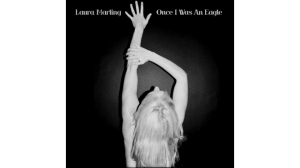First published back in 1999, this book sparked a whole bunch of controversy over the books that teenagers read in high school. Banned in at least two American high schools, groups of parents campaigned against Stephen Chbosky’s coming-of-age novel The Perks of Being a Wallflower for its lewd content that includes drug use and sex scenes. It’s also a book that’s become a cult favourite among teens, some of whom say reading the story saved their life. A film adaption starring Emma Watson as Sam and Logan Lerman as narrator Charlie was released last year.
As someone who had never read the book it came with a lot of expectation. I’d seen the film and enjoyed it as a much more real depiction of the high school experience and the troubles teens sometimes face than a lot of other American high school movies. Yet after finally having read Perks now, I must admit I’m disappointed. It failed to be the great bildungsroman of powerful content and insightful voice that the media had promised me. In fact, I have to say I’m at one of those rare points where the movie really is better than the book. And in recent years this is isn’t the first time I’ve felt this way about novels aimed at teens that have been made into movies.
It feels like there is a bit of a developing trend. Especially when all these books have come from America. In particular two other examples stand out to me – the first Twilight book and film and the first Hunger Games book and film. Both adaptions, like Perks, had a big following. Whatever your opinion on either Twilight or The Hunger Games (and whether you are offended that I’m comparing supernatural and futuristic romance novels with a realist text), they both are particularly guilty of a sin I found in Perks and for that matter a large number of other American teen books – over narration.
The narrator of Perks is Charlie who records his first year of high school in letters sent to an anonymous other (a plot structuring device I found contrived and annoying). At times Charlie sounds insipid in the way he takes a very factual narrative voice to events he observes. And perhaps this is what I disliked most about him – Charlie is set up as a “wallflower” who watches those around him providing commentary on the struggles of others, only he doesn’t really provide commentary because it rarely feels like he has an opinion.
He is an observer who rarely offers judgement on others’ actions – at least not when it’s something he could controversially have an opinion about. For example, his sister’s decision to have an abortion. Charlie doesn’t explicitly say or even grapple with the morals of this one. He just goes along with his sister in a merely observatory position. However, when it comes to her abusive boyfriend Charlie does seem to have more of an opinion. He still sticks to merely descriptive sentences but he ends the letter which first describes his sister being hit with this statement: “And I felt very bad for both of them.”
Chbosky refuses to let Charlie be a moral compass for the book, which is perhaps admirable that as a writer he isn’t trying hard to preach a point of view. The problem is that Charlie becomes so passive a narrator that his failure to judge discredits him and makes him hard to like at times.
What also annoyed me about Charlie is that although he is meant to be an insightful character because of his tendency to stand on the sidelines and watch, this is often undermined. He doesn’t seem to be as aware as we’re meant to believe. And Charlie’s incredible naivety about sex – seen when he masturbates for the first time but doesn’t seem to know what’s going on – jars with his previous experiences. Throughout the book Charlie tells us he’s had erections before and he’s seen people having sex including his sister and her boyfriend. And yet as a reader we’re supposed to believe his complete lack of sexual knowledge when he starts having fantasies about Sam.
Then there is the simple way he describes his discovery about masturbation:
“Do you know “masturbation” is? I think you probably do because you are older than me. But just in case, I will tell you. Masturbation is when you rub your genitals until you have an orgasm.”
Chbosky adopts a very factual tone that is direct without actually being confronting. Charlie sounds like a textbook explaining masturbation, and Chbosky’s use of Charlie’s voice for some down right obvious exposition is annoying. It’s like a lesson in sex ed has been slipped into story form.
This leads me to my particular dislike of over-narration where the writer doesn’t seem to have any faith in their reader and has a tendency to over-explain things – generally in a very clumsy way. Charlie, as a character and letter writer, often feels like a plot device to as neutrally as possible let teens know about some issues they or others might be going through – drugs, sex, depression, homosexuality. Chbosky often does this to the detriment of Charlie’s voice and to the novel as a whole. It’s what prevents this book from proving itself as a literary work (and where many of the great novels name-dropped in Perks succeeded). It’s also what made the movie better – no annoying exposition of an event.
However, it does do better than the efforts of Stephenie Meyer and Suzanne Collins who tend to over-narrate in a way more annoying fashion. Both are guilty of hitting their readers over the head with the emotions of their main charters: Bella and Katniss. A lot of cliche language is often called on to do this. The heavy handedness in style shows no appreciation for the art of subtlety or for the intelligence of readers (who apparently can’t work things out without them being directly expounded to them). And it’s what makes the films a vast improvement – reliance on the visual cuts out some awfully delivered narration. As a medium film engages with a range of indirect cues that the audience must pick up on. It’s going to fail if there’s a continual voice over telling the viewer that Katniss is confused about Peeta and Gale, or Bella is thinking how good looking Edward is.
Generally, this flaw largely common to youth novels is in mostly American published books. It’s what I personally think is an industry wide problem where taking a literary approach is not encouraged in young adult books. The problem is not just with the talent and style of the writers, but with the editors who largely seem to be failing in their jobs. I’m definitely not a fan of Twilight, but I do find the central idea of the first book interesting and firmly believe that with some serious editing the books would have been vastly improved. They probably would have been much shorter too with the amount of unnecessary text that could have been cut out, and Bella and Edward would never have worn matching beige turtlenecks (I hope).


